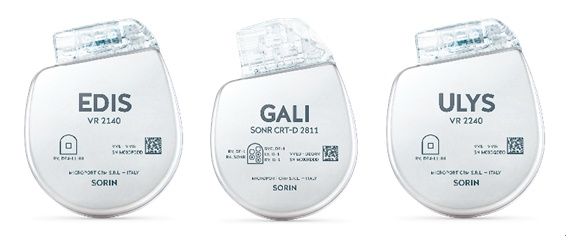Rega heart series magnetic resonance condition safe implantable cardiac pacemakers produced by a Shanghai company have been approved by the State Food and Drug Administration, becoming the first domestic pacemaker series compatible with magnetic resonance imaging (MRI) examinations. product. They will benefit the vast majority of patients who require implanted pacemakers and who also need MRIs for other medical conditions.
MRI is the gold standard for diagnosing diseases related to the central nervous system and skeletal muscle, and is also the main method for diagnosing abdominal and vascular-related diseases. With the continuous advancement of national hierarchical diagnosis and treatment, MRI equipment will continue to be popularized in my country and used in the diagnosis of more diseases. However, once a conventional pacemaker is implanted in the human body, the patient cannot undergo an MRI examination. Pacemakers compatible with this test are subject to MRI condition verification before they are approved for marketing.
As a subsidiary of MicroPort Group, the Rega series pacemaker produced by Chuangling Heart Rhythm Management Medical Devices (Shanghai) Co., Ltd. has been approved for the market since August 2017. , physiological, long life and other characteristics, has been recognized by many doctors and patients. Up to now, the cumulative clinical implantation of this series of pacemakers has exceeded 10,000 cases, of which the oldest patient is over 100 years old, and the youngest is only 22 months old.

The approved Rega pacemaker has been verified by magnetic resonance conditions and proved to be safe . Zhu Xiaoming, general manager of Chuangling Heart Rhythm Medical, introduced that this pacemaker can automatically turn on the MRI inspection mode after detecting the magnetic field of the MRI equipment, and automatically turn off the MRI inspection mode and restore the previous settings after leaving the MRI magnetic field environment. This function can ensure that the pacemaker maintains the appropriate parameter settings as much as possible before and after entering the MRI environment, reducing patient discomfort and the risk of arrhythmia, and reducing the workload that requires manual intervention by doctors after surgery.
This pacemaker and the Beflex magnetic resonance conditional safety lead, which was approved in January this year, together constitute a safe pacing system in the magnetic resonance environment. Beflex MRI Conditional Safety Leads have been on the market in Europe for more than 10 years, with more than 100,000 implants, and obtained EU CE certification for MRI whole body scans.
In France, the MicroPort Cardiac Rhythm Management Company, a subsidiary of the MicroPort Group, also received good news. The implantable cardioverter defibrillator and cardiac resynchronization defibrillator developed by the company have obtained the CE certification of the latest EU medical device regulations that meet the safety of MRI conditions.

This means all three series of products that qualify, especially in Apollo clinical studies with Invicta defibrillation electrodes The products of lead implantation all meet the safety conditions of 1.5T and 3T magnetic resonance. In June last year, the Apollo project, a premarket clinical study to evaluate the safety and efficacy of Invicta defibrillation leads, was officially launched. After the product that has obtained the EU CE certification detects the magnetic field of the MRI equipment, it can automatically open the MRI inspection mode, and automatically close the MRI inspection mode after leaving the MRI equipment.